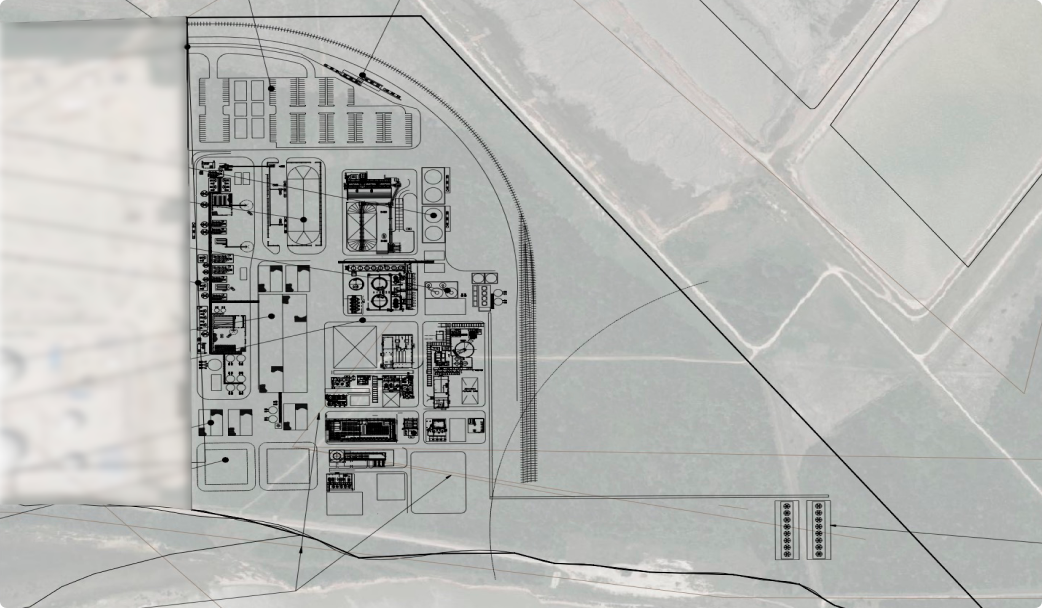First Atlas plant
–Electra–
We are building our first commercial plant – Electra – in North America to produce clean nickel, magnesium hydroxide and SCM by 2027. Electra’s products will have commercial value and effectively abate emissions in other industries.

Electra, the first Atlas plant
We are working with leading participants in the global nickel industry to build Electra and demonstrate the technological and economic viability of the pioneering Atlas Process as well as its scalability.
Electra will be based near renewable sources of energy and close to relevant transport infrastructure.
Final design and engineering work for Electra is near completion in preparation for the construction phase.
Atlas is currently assessing three potential sites in North America. We aim to make a final decision by mid 2024.
Electra’s Products
Our first plant will produce:
Nickel
1,800 tons per year
Nickel in the form of Mixed Hydroxide Precipitate (MHP), containing both nickel and a small percentage of cobalt, would enable approximately 550 megawatt-hours of EV batteries per year.
Magnesium Hydroxide
50,000 tons per year
99% pure magnesium hydroxide could reduce shipping emissions by desulfurizing 55,000 tons of SO2 per year.
SCM
70,000 tons per year
Supplementary Cementitious Material (SCM) would reduce the carbon footprint of 233,000 tons of cement mix per year by replacing clinker while SCM can be substituted for Portland Cement to reduce costs and dramatically reduce embedded carbon in new buildings.
Markets
Demand for nickel used in batteries is expected to grow by approximately 20 to 25 times by 2040 according to the IEA [1] as it is critical to supporting the energy transition.
There is an emerging global shortage of nickel that can be used in battery supply chains with some expecting a battery nickel supply deficit that could reach nearly 900,000 tons per year by 2030.[2]
The Atlas Process enables production of battery grade nickel products with ultra-low emissions from ore that was previously unsuitable for batteries. We can convert 99% of saprolite ores into saleable products.